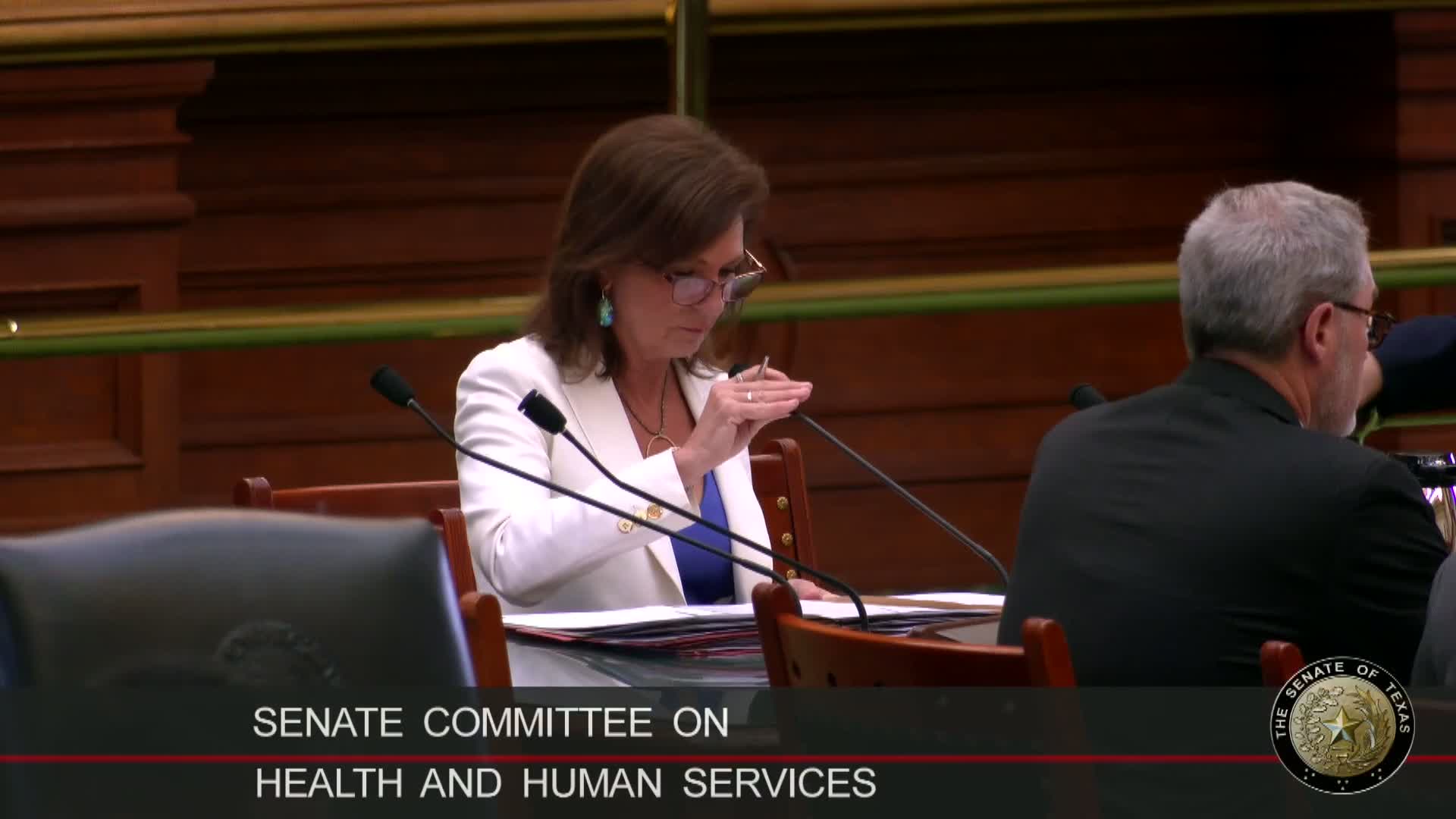Senate committee adopts substitute to expand human‑trafficking screening for children in state care
Get AI-powered insights, summaries, and transcripts
Subscribe
Summary
The Senate Committee on Health & Human Services adopted a committee substitute for House Bill 451 to require broader screening for human‑trafficking risk among children in the custody of the Department of Family and Protective Services and those under Texas Juvenile Justice Department jurisdiction; the bill was left pending for later action.
The Senate Committee on Health & Human Services on a voice vote adopted a committee substitute to House Bill 451, which would require universal screening for human‑trafficking risk for children in the conservatorship of the Department of Family and Protective Services (DFPS) and those under the jurisdiction of the Texas Juvenile Justice Department (TJJD).
The bill’s sponsor, Sen. Bryan Paxton, told the committee the measure would expand the use of an existing, validated screening tool selected by the governor’s child trafficking team to identify children at risk and connect them to care coordination teams that cover about 95% of the state. “This bill expands the utilization of screening for risk or signs of commercial sexual exploitation to all children that are in the conservatorship of DFPS or under the jurisdiction of TJJD,” Paxton said.
Why it matters: Witnesses and the sponsor told the committee that children in foster care and juvenile justice are at comparatively high risk of exploitation, and that current screening is done inconsistently. Caroline Roberts of Children at Risk testified the state screened only about 336 children in DFPS conservatorship in 2023—roughly 1% of children in care—while TJJD screened about 57% of youth entering juvenile probation. “By getting ahead of the harm, this also is a more fiscally responsible way of allocating our limited resources,” Roberts said.
Committee substitute and fiscal note: The committee substitute incorporates a fiscal‑responsibility amendment to address the bill’s fiscal note; during questioning, Sen. Sparks confirmed the amendment made the identified expense a one‑time cost. Senator Perry moved adoption of the substitute; the chair announced the motion adopted and the bill was left pending for later action in committee.
What the bill would do: The substitute would require DFPS and TJJD to use the validated screener—completed by agency staff based on records, observations and intake information—to classify cases as no concern, possible concern or clear concern. If a “clear concern” is identified, care coordination teams and advocacy agencies would be able to provide or refer services.
Voices from the hearing: Rhonda Kuykendall of the Fort Bend Anti‑Trafficking Collective described the screening tool as an information integration tool that draws on case files, intake processes and stakeholder observation. Tori Tipton, anti‑trafficking consultant for Texas CASA, urged mandatory universal screening and said standardized screening would “give us invaluable data that informs our policies and prevention programs.”
Next steps: The committee adopted the substitute and left House Bill 451 pending, giving sponsors and stakeholders time to resolve fiscal and implementation details before the bill advances. Public testimony is part of the record and will be available with the committee minutes.
Notes: The article summarizes committee testimony and committee action taken on the substitute; it does not infer final passage or implementation details not in the hearing record.
